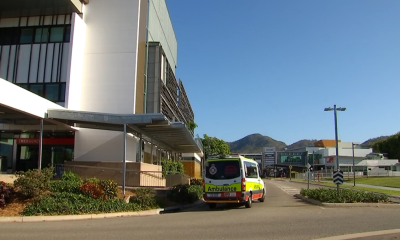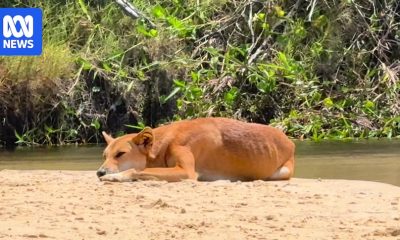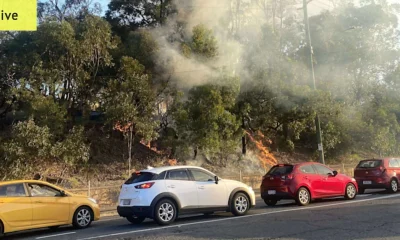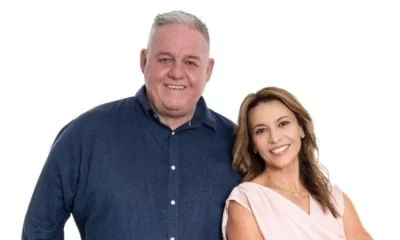Health
The everyday people putting their bodies on the line for a COVID cure – Brisbane Times
The first of 120 volunteers have been given a vaccine candidate developed by UQ which it is hoped will be approved for general use by next year.

Although the vaccine has shown no dangerous effects in pre-clinical trials, being the subject of a medical experiment always comes with some risk.
But Ms Sullivan, 46, said she was “quite excited” to be taking part.
Professor Trent Munro (left) with Associate Professor Keith Chappell, of the UQ School of Chemistry (right), and Professor Paul Young, along with the first two vaccine recipients.Credit: University of Queensland
“I’ve never been part of anything like this so to see what the process is like and how stringent it is has been really eye-opening,” she said.
“I want to get the world back to normal to get people working, to get people seeing their families. Its important.”
Dr Fercher is a researcher at UQ himself, however he has not been working on the vaccine. But the 34-year-old, originally from Austria, said he had been following its development with great interest, and saw taking part in the trial as a small way to give back to the Australian community.
“The Australian, and especially the Brisbane, community was nothing but helpful and kind, and seeing so many people out of work and affected by this, I wanted to do something to help us get out of this as fast as possible,” he said.
“Im lucky to still have a job and still be at work, but I cant travel to my family in Austria, and international flights dont look like they will happen without a vaccine, so thats my personal motivation for doing this.”
The vaccine has been developed by UQ using “molecular clamp” technology, which enables researchers to physically shape proteins to mimic those on the surface of the coronavirus.
Project director Professor Trent Munro said while the trial was being fast-tracked, corners were not being cut around safety.
“The same standards will apply to this trial as apply to any other trial. Theres a large number of vaccines in development, so well be looking closely across those and trying to get data thats aligned,” Professor Munro said.
“At the end of the day, the vaccines that make it through the process will be absolutely safe, and hopefully have the highest chance of having really good efficacy.”
Professor Munro said the fact that multiple vaccines were in development across Australia and the world was a good thing, and rather than being in competition, all of the researchers were keeping tabs on what the others were doing.
UQ received $10 million from the Queensland government in March, which followed initial funding in January of $US4.5 million from the international Coalition for Epidemic Preparedness Innovations.
The trial itself is being run by clinical trial specialist group Nucleus Network with pharmaceutical giant CSL, which will manufacture the vaccine if it is given regulatory approval.
Following the first two patients receiving the vaccine on Monday, 15 more will get a dose on Wednesday, 15 on Thursday and so on, until all 120 patients have had their first dose.
Some will receive the vaccine while some will receive a placebo, and the researchers will also use three different dose levels to find out which is the most effective.
The trial could expand to as many as 1000 people in its second and third stage, so at least some of those who volunteered for the first trial may still get a call.
Stuart Layt covers health, science and technology for the Brisbane Times. He was formerly the Queensland political reporter for AAP.

-

 Noosa News17 hours ago
Noosa News17 hours agoMan arrested after mother and 10-year-old girl killed in car crash in Far North Queensland’s Doomadgee
-

 General22 hours ago
General22 hours agoQueensland considers allowing dingoes to be kept as pets
-

 Noosa News24 hours ago
Noosa News24 hours agoBrisbane news live: Cemetery catches fire in Brisbane’s east
-

 Noosa News20 hours ago
Noosa News20 hours agoDuo revealed as new hosts for 4BC Breakfast
